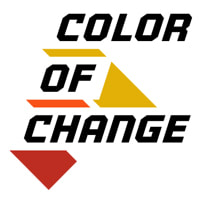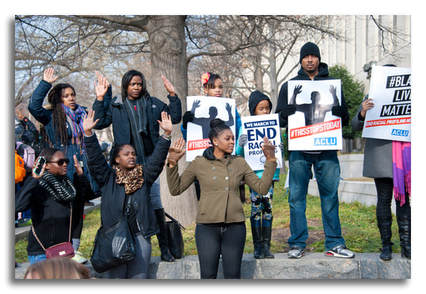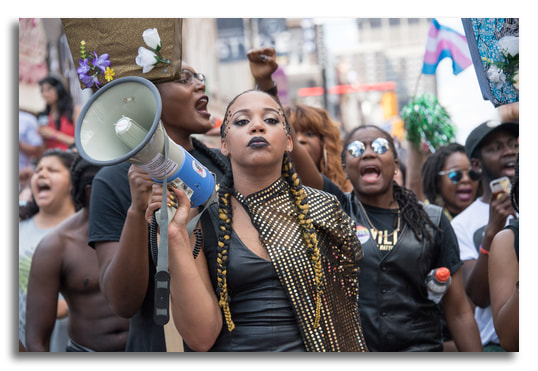- Home
- Who We Are
- Kelly Ann Brown
- Board of Directors
- Grant Process
-
Grant Recipients
- 2021 Grants >
- 2020 Grants >
-
2019 Grants
>
- Blueprint North Carolina
- Hometown Action
- Indivisible
- Kentucky Civic Engagement Table
- Maine People's Alliance
- Montana Voices
- PA Stands Up
- RAZE
- Rural Utah Project
- We The People – Michigan
- Wisconsin Voices
- Artist Lilli Lanier
- Living Design Foundation
- UMO School
- Vashon Wilderness Program
- LMHPCO
- March of Dimes
- Pink Smoke Over the Vatican
- 2018 Grants >
-
2017 Grants
>
- Seahawks Equality Fund
- Mother Jones Investigative Fund
- Megan Mudge Scholarship Fund
- Charlotte Maxwell Clinic
- Earthjustice
- Vashon Wilderness Program
- Father Roy Bourgeois
- Northwest Immigrant Rights Project
- Legal Voice
- LMHPCO
- Color of Change
- The Nuns, The Priests, and The Bombs
- Harmony Project
- Honolulu Biennial Foundation
- El Centro de la Raza
- 2016 Grants >
- 2015 Grants >
- 2014 Grants >
- 2013 Grants >
-
2012 Grants
>
- 826 Valencia
- Pathstar
- The Los Angeles Maritime Institute/Topsail
- Center for Justice and Accountability
- Ruth Asawa School of the Arts
- Maasai Children's Initiative
- Pathways to Independence
- New Connections
- Homeboy Industries
- Pink Smoke Over the Vatican
- Father Roy Bourgeois
- Yeko Anim
- BookMentors
- Annie Wright Schools
- 2011 Grants >
- AWS Endowment Fund
Color of Change

“Where justice is denied, where poverty is enforced, where ignorance prevails, and where any one class is made to feel that society is in an organized conspiracy to oppress, rob, and degrade them, neither persons nor property will be safe.”
-- Frederick Douglass
In 2005, Americans watched helplessly as Hurricane Katrina blasted through New Orleans. Our government was unable—or unwilling—to quickly assist our fellow, (mostly African-American) citizens. 1,833 people died. Billions of dollars were lost in property damage. Out of this tragedy, Color of Change was born with this mission:
Color Of Change is the nation’s largest online racial justice organization. We help people respond effectively to injustice in the world around us. As a national online force driven by over one million members, we move decision-makers in corporations and government to create a more human and less hostile world for Black people in America.
KABF board members found Color of Change through online petitions requesting signatures. Studying the issues that were being addressed led us to support Color of Change with a 2017 grant. With over a million members and counting, Color of Change is a force
to be reckoned with.
-- Frederick Douglass
In 2005, Americans watched helplessly as Hurricane Katrina blasted through New Orleans. Our government was unable—or unwilling—to quickly assist our fellow, (mostly African-American) citizens. 1,833 people died. Billions of dollars were lost in property damage. Out of this tragedy, Color of Change was born with this mission:
Color Of Change is the nation’s largest online racial justice organization. We help people respond effectively to injustice in the world around us. As a national online force driven by over one million members, we move decision-makers in corporations and government to create a more human and less hostile world for Black people in America.
KABF board members found Color of Change through online petitions requesting signatures. Studying the issues that were being addressed led us to support Color of Change with a 2017 grant. With over a million members and counting, Color of Change is a force
to be reckoned with.
|
Color of Change has an excellent leader in Executive Director Rashad Robinson. A lifelong activist, Mr. Robinson formerly served as Senior Director of Media Programs with GLADD. His work included changing the false image in our culture of LGBT people and their families. Prior to that, Mr. Robinson worked on the issues of voting rights and racial justice through the Right to Vote Campaign and FairVote. Mr. Robinson explains the work of Color of Change:
“As we are fighting on issues of criminal justice or voting rights or the economy, we are not talking about black communities as the problem. We are talking about us as the solution. When black people are not only present, but powerful, history moves in the right direction towards justice.” |
Color of Change has seen victories that many thought impossible, and the KABF board wanted to share three of their amazing triumphs:
- Fox News provocateur and host Glenn Beck made a living spewing lies and hate about African Americans on national television. Color of Change’s website tells the story of how they took him down:
In 2009, Color Of Change forced Glenn Beck off cable television, holding his advertisers and Fox News accountable for his dangerous drumbeat of racist misinformation.
For years, Glenn Beck used his television show on Fox News to blame Black people and other people of color—our leaders, our organizations, and the policies that protect our rights—for all of America’s problems...Even more dangerous than Beck’s over-the-top inflammatory rhetoric: the way he was building an infectious, deeply divisive and completely inaccurate narrative that Black political power is somehow a threat to white people…
White supremacists praised him for helping to make their ideas more respectable and widespread. And he did it with the support of hundreds of major corporations that advertised on his show. No one was fighting back effectively; our movement didn’t have an answer to Glenn Beck.
But in July of 2009, when Beck called President Obama a “racist” with a “deep-seated hatred for white people,” we saw an opportunity to finally hold Beck and his sponsors accountable for his racist myth-making.
Within days of Beck’s attack on President Obama, tens of thousands of Color Of Change members were signing our petition to all of Beck’s advertisers, channeling our outrage into meaningful and strategic leverage over Fox News. At the same time, behind the scenes, our staff initiated a dialogue with some of Beck’s biggest advertisers, corporations including Walmart, CVS, Best Buy and Sprint. We conveyed to them the concerns of our members, and presented them with a clear choice: stop funding Beck, or become publicly associated with his racism and divisiveness. We partnered with Media Matters to track ads on Beck’s show, and worked with organizations including CREDO Action, MoveOn and Jewish Funds for Justice to draw more people into the campaign and increase the pressure.
Most companies moved quickly to pull their ads, once they understood the power of our members to hold them accountable. When a corporation refused, our members took action, flooding them with hundreds of phone calls, and spreading content and commentary on social media that linked their brand to Beck and his attacks on Black people. Nearly every corporation we targeted pulled their ads. The victories snowballed, continuing for months.
Our unique mix of strategically coordinated public and private pressure made the campaign “unusually successful,” according to The New York Times. More than 285,000 people signed our petition, and more than 300 advertisers dropped Glenn Beck, forcing Fox News to fill the ad space for his show with spots for gold coins, exercise machines and right-wing publications. The major advertisers stayed away for nearly two years until Fox News finally cancelled Beck’s show in 2011.
Beck’s departure greatly reduced his influence, and re-set the rules for what’s okay and not okay on political TV. The campaign demonstrated that Black people have the power to hold advertisers accountable for supporting media that demonizes us—even on Fox News.
Glenn Beck now regrets his comments about President Obama. People can change, especially following catastrophic events like a job and salary loss. - A second victory was the outing of ALEC, American Legislative Exchange Council, started by conservatives in 1973. ALEC meets with legislators and corporate lobbyists who vote on “model bills” with corporations winning over individual rights. Legislators, usually extremely conservative Republicans, present these ideas as theirs without revealing ALEC’s role. Corporations fund ALEC with corporate members paying large annual fees. ALEC receives direct grants from large corporations such as ExxonMobil and conservative foundations like The Charles G. Koch Foundation. Their model bills support the corporations that support ALEC, like Big Tobacco, Big Pharma, and the prison privatization corporations. Voter ID laws are also credited to the work of ALEC.
Mother Jones’ 2012 exposé on ALEC tells the story of ALEC and Republican Tommy Thompson. Mr. Thompson began his political career as a Wisconsin state legislator. He became Wisconsin’s longest serving governor and went on to serve under President George W. Bush. Mother Jones reported:
On his way to the top, Thompson found help in an influential policy organization then little known to the public: the American Legislative Exchange Council, or ALEC...As Thompson once admitted about his early days in the Wisconsin Legislature, “I always loved going to [ALEC] meetings because I always found new ideas. Then I’d take them back to Wisconsin, disguise them a little bit, and declare that it’s mine.”
A fierce advocate of free markets, privatization, and downsizing government, ALEC brings together dues-paying corporations and thousands of state lawmakers, most of them Republicans, to craft “model legislation” for use in state legislatures...This year, ALEC has faced an onslaught of criticism from liberal groups for peddling “discriminatory” voter ID bills and the “Stand Your Ground” gun legislation brought to national attention by the Trayvon Martin killing in central Florida.
One of ALEC’s many evil ideas impacted state sentencing laws. In 1998, Wisconsin Governor Tommy Thompson signed into law the “Truth-in-Sentencing” legislation championed by ALEC. As explained by Mother Jones:
The measure—which 25 other states had passed in 1995 with ALEC’s help—increased maximum sentences for felons and eliminated parole. Wisconsin’s own version of the bill mirrored legislation written by ALEC. Then-Assemblyman Scott Walker (now governor) said that ALEC’s statistics on the benefits of the bill “were very helpful” to passing the bill.
Truth-in-sentencing legislation originated out of ALEC’s Criminal Justice Task Force, members of which included private prison companies such as the massive Corrections Corporation of America. It came as no surprise that Wisconsin’s law soon drove up corrections spending: Over the course of Thompson’s tenure, corrections spending ballooned from $179 million in 1990 to nearly $850 million in 2001—a windfall for companies like CCA. A 2010 report by the Wisconsin Taxpayers Alliance noted that, between 1993 and 1999, Wisconsin imprisoned six times as many people as neighboring Minnesota, despite the two states having strikingly similar populations and demographics.
Color of Change went after ALEC in 2011, demanding that 100 of ALEC’s corporate sponsors end their financial support.
Color of Change explains their motivation:
Funded and guided by the largest and most prominent corporations in America, ALEC is a dangerously effective, behind-the-scenes player in passing dozens of laws that threaten Black people’s livelihood and well-being. They have conceived, written, promoted and—through their network of corporate-influenced state legislators—helped spread discriminatory voter ID laws in states across the country, which disproportionately block Black voters, immigrants, older people and other groups from voting. They worked with the NRA to spread the so-called “Stand Your Ground” laws that emboldened racist vigilantes to shoot at innocent people—the same law that shielded George Zimmerman from being brought to justice after he murdered Trayvon Martin. Laws developed and promoted by ALEC, on behalf of their corporate and right-wing sponsors, prevent minimum wage enforcement, roll back rights for working people, help prison companies lock up more and more Black people for profit, and enable corporations to poison our communities through environmental deregulation.
For way too many years, ALEC had been creating, promoting and helping to pass these laws in state after state across the country, and almost no one knew that household names like Coca-Cola and AT&T were behind it. Yet today, their reach and influence is a whole lot less. When corporations refused to pull their funding, thousands of Color Of Change members flooded their phone lines with calls. We also supported rallies at shareholder meetings and in front of the corporate headquarters of some of the most prominent companies funding ALEC. We told the story of our members’ activism in major media, while fighting off attacks against the campaign by the right-wing media, which erupted as soon as we started to gain ground.
When Johnson & Johnson tried to ignore our campaign, our members paid for ads on Black-focused radio stations calling them out for continuing to fund ALEC. A week later, Johnson & Johnson pulled its ads.
In the end, we won, and successfully defined core ALEC policies as being outside the political mainstream. More than 100 corporations and nearly 400 state legislators left ALEC, and the group suffered a $1.2 million budget shortfall by the end of 2013. To control the damage, ALEC disbanded its public safety and elections task force, which was responsible for both the voter ID and “Stand Your Ground” laws. Our campaign dramatically reduced the power of an organization hostile to Black America, and strengthened the power of Black consumers and communities to demand accountability from corporate America.
ALEC doesn’t only harm Black people—it’s a critical part of the right wing infrastructure that helps corporations write laws that hurt everyone but corporate CEOs. By challenging ALEC on racial justice issues, we were able to significantly reduce their power, protecting Black people and everyone else from the harm caused by their policies. And our campaign set the stage for other groups to pressure ALEC’s corporate funders on issues like climate change denial, successfully pushing tech companies like Google and Facebook to stop funding the group. - Currently, with Trump as president, white supremacy has gained a foothold in the White House. Hate crimes are on the rise, with the 2017 murder in Charlottesville, Virginia, during a white supremacy rally—a foreseeable consequence. Color of Change has been quick to effectively respond. By demanding that payment companies such as MasterCard and American Express cease to do business with racist hate groups, Color of Change hopes to “cut them off at the source.”
|
Color of Change helps all of us do something about injustice. Until justice is real. For more success stories and information on how to get involved, visit www.colorofchange.org. |

